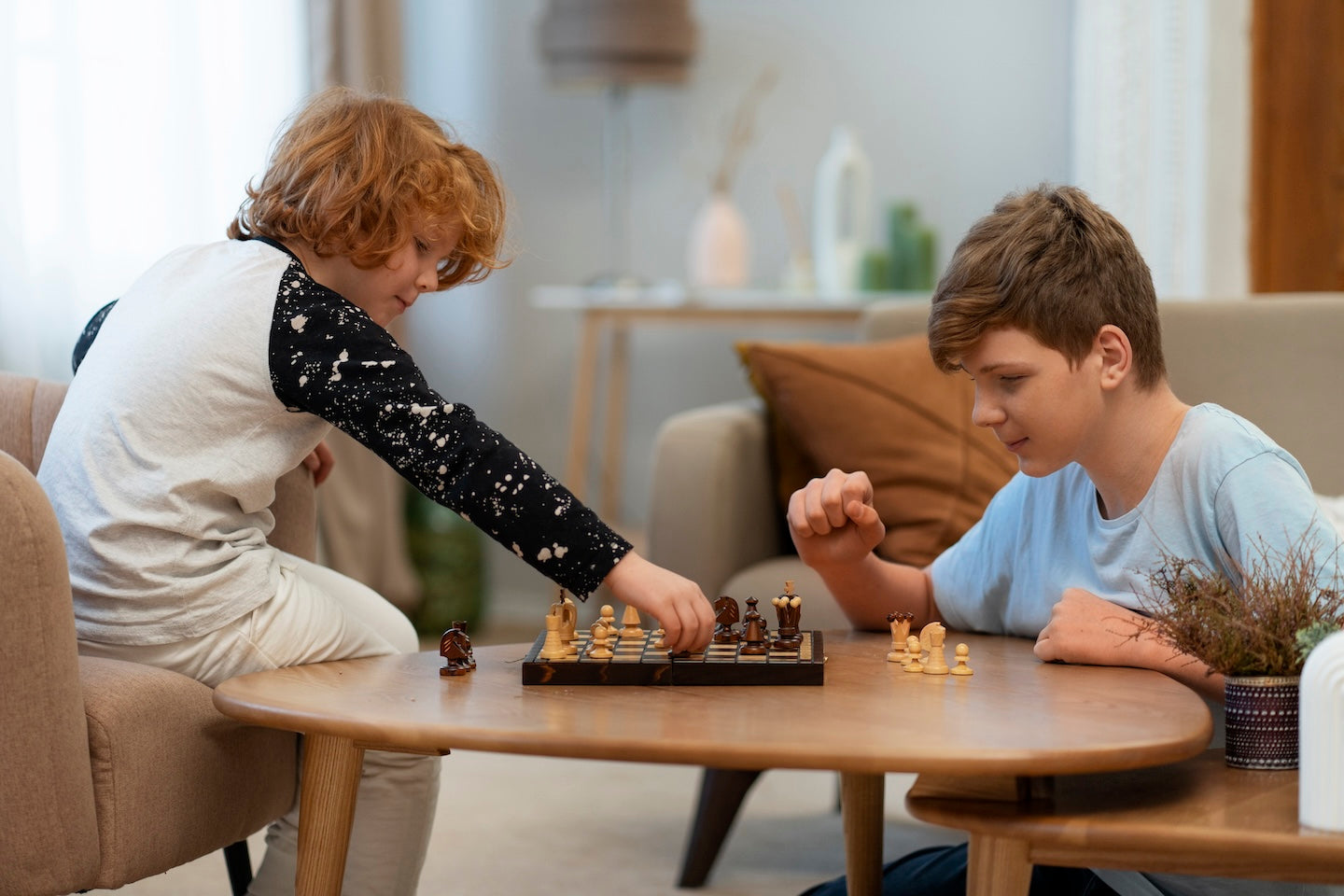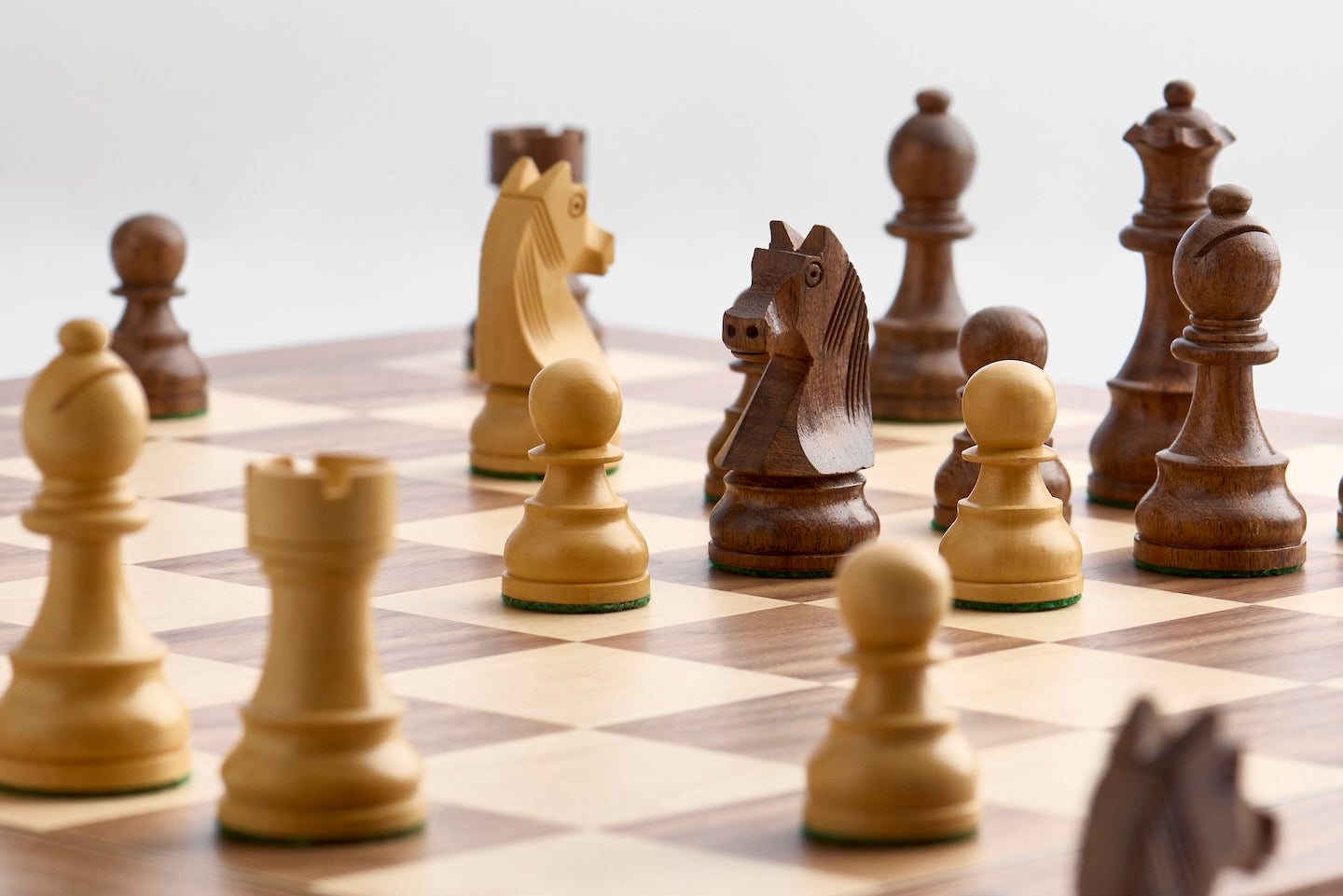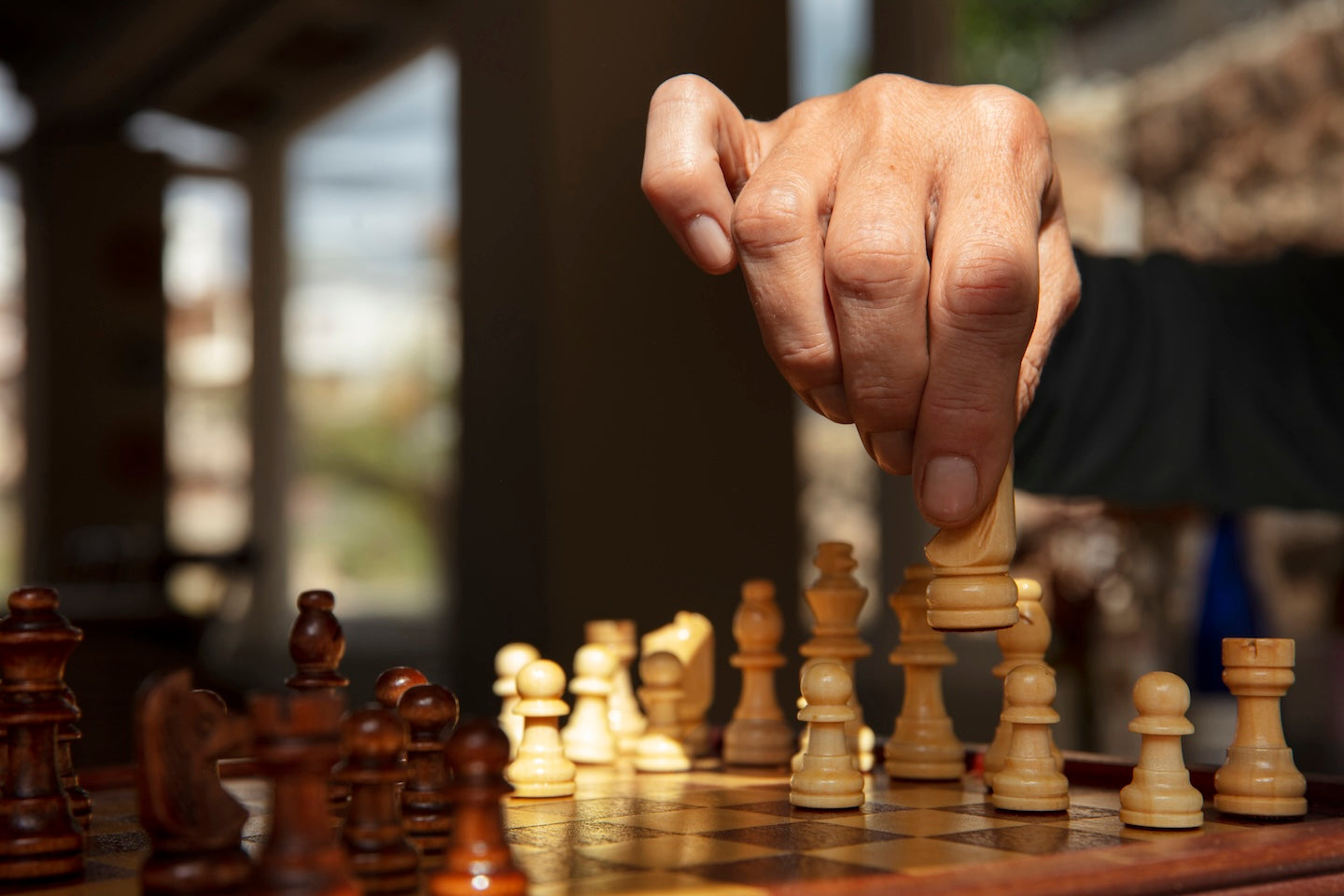
Chess and screen time – why one should replace the other
There is often talk about reducing screen time. It is not difficult to understand why. In homes all over the world, children and adults are hunched over phones, tablets and laptops. The hours pass quickly. Presence slowly disappears.
But it's not enough to just take away the screen. You also have to offer something else. Something that has a physical form. Something that requires immersion. Something you can return to – alone or together. Chess is one of the best bets.
A physical activity that makes you smarter
Chess is a mental activity, but also a physical one. You sit at a table. You touch wooden pieces. You take your time. It's the opposite of most digital entertainment, where you swipe, click and zap. Chess requires presence, concentration and patience.
And it pays off. Studies have shown that chess strengthens memory, problem-solving and decision-making skills – in both children and adults. When you play chess, you don't just train your brain. You also learn to deal with consequences, take responsibility and think ahead.
See also: Why children should learn to play chess
Chess as a substitute for passive entertainment
There's nothing wrong with technology. But many people miss alternatives. Chess offers just that: A game you can play every day – without a screen, without sound, without distractions. And unlike many screen-based activities, chess doesn't leave you feeling empty afterwards.
It's an activity you can share. It doesn't require any special equipment. A good chess set on a table, and you're in. And you feel it right away: The calm. The excitement. The curiosity.
Read also: How to choose the right chess set
From habits to rituals
Chess can easily become a habit. But the best chess habits develop into rituals. A set time during the week. A game with a child or a friend. A breather in a busy everyday life. And as you play, the game gets richer. Not faster, not wilder – just better.
Chess has no requirements for pace. That in itself is a rarity. In a world where most things must be fast, efficient and visually stimulating, chess stands as an example of the opposite: silence, structure and immersion.
An investment in presence
It doesn't take many minutes to turn on a screen. But it takes a little longer to set a table, find the chess set, and sit down facing each other. That's exactly why it works.
Chess is a little ritual that signals something else: Now we are present. Now we have time. And when the game is over, the pieces are left behind – ready for the next time. That's more than you can say for most apps.



